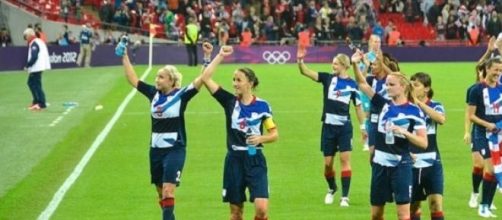Plans have been set in motion to enter both men's and women's football teams to represent Great Britain at the Olympics in Rio 2016. The Football Association had originally decided against such a decision, but has done a u turn in dramatic fashion by now contacting the corresponding bodies in the constituent countries of Scotland, Northern Ireland and Wales to see what their stance on this would be, and whether they want to be involved. As football is the national sport of England, the move is not that unexpected, but any form of joint British team in football always raises one or two issues that need to be resolved first.
The FA's plans have been confirmed by the British Olympic Association, but the entry is by no means certain even if agreement as to the make-up of the team can be made between the various countries involved. Both the men and women would need to qualify in order to compete in Rio and there is the potentially 'thorny' area of getting Fifa to sanction the move as well. In the past, attempts to combine the resources of a British team, just for the Olympics, have been viewed by football's governing authorities as an opportunity to remove the individuality of the countries involved from their other major tournaments, such as the European Championships and World Cup. That is why the individual home nation governing bodies are forever uneasy about granting their agreement to such a move.
If the 'joint' teams were allowed to compete in Rio, with no restrictions placed on the other competitions as to individual country involvement going forward, the qualification requirements would be by no means straightforward to achieve. The men's qualification would rest on England's young players needing to finish in the top four at the European Under-21 Championship. The women's qualification would necessitate England being one of the top three European sides at the World Cup in Canada. No pressure there then, based on England's struggles at major championships in the past!
Team GB did have representation at London 2012 in both the men's and women's competitions, which did include players from across the home nations in the sides that were put out.
That was despite no official backing being provided by the governing bodies of Scotland, Wales and Northern Ireland on that occasion. The composition of the men's team in 2012 was mainly English players with five Welsh players in addition, including Ryan Giggs, Aaron Ramsey and Craig Bellamy. The women's team was even more England-biased with only two Scottish players from the other home nations involved, those being Ifeoma Dieke in defence and Kim Little in midfield.
Despite the GB teams proving to be a big hit with the public at the Olympics of 2012, with a record crowd of over 70,000 for a women's match in Britain for the Brazil game, both sides failed to advance beyond the quarter-finals.

